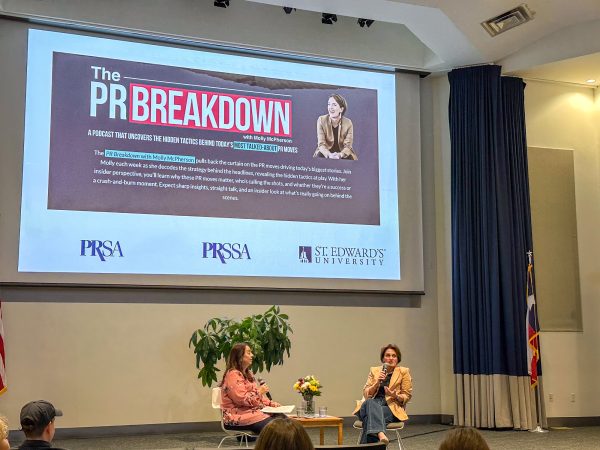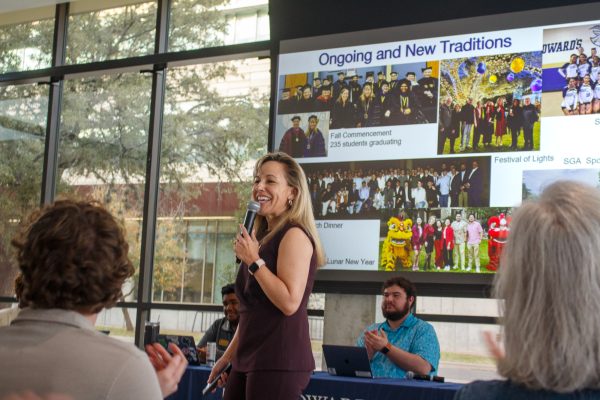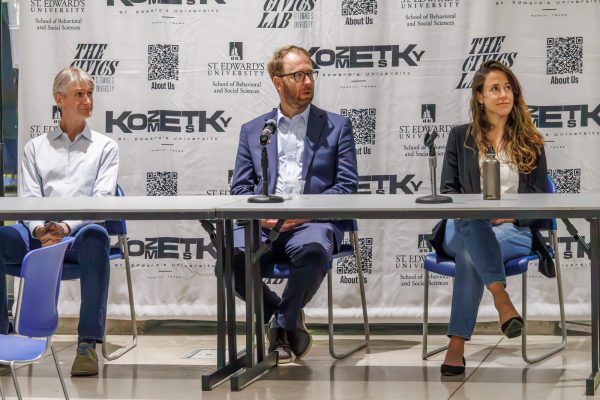After DeVos’ claim, campus continues championing Title IX efforts
The Department of Education recently rescinded the Obama-era guidance on how universities handle sexual assault under the Title IX federal law. This comes after Secretary of Education Betsy DeVos voiced concern over the Obama administration’s procedure, claiming it denied proper due process to the accused.
The Obama administration’s Title IX guidance included the “Dear Colleague” letter from 2011, which prompted a greater push on higher education institutions to respond to sexual harassment and sexual violence.
The announcement brought backlash from a number of advocacy groups and lawmakers, with grievances surrounding concern for survivors of sexual assault.
“Shameful. This decision will hurt and betray students, plain and simple,” said New York Senator Kirsten Gillibrand in a Tweet.
St. Edward’s Title IX Coordinator Dr. Lisa Kirkpatrick stresses that St. Edward’s intends to remain vigilant on adhering to the mission-based approach of Title IX on campus.
“One of the things I want our campus community to know is, right now, we do as we have been doing,” Kirkpatrick said. “It’s business as usual, nothing has changed on this campus.”
Kirkpatrick went on to clarify that while there are Title IX laws that the university must abide by, St. Edward’s alters parts to cater to the private university’s mission.
“There are standards that we have in our community that are less about the law and more about our mission,” Kirkpatrick said. “Those are just as important to us.”
Kirkpatrick considers DeVos’s to lack a substantial background in higher education, and she criticized DeVos’s lack of attention to those who work extensively in the field.
“I think where it gets complicated is when you don’t attend to the wisdom and the experiences to those in this work and by the people who use our processes,” Kirkpatrick said.
President of the St. Edward’s University It’s On Us chapter, Alma Baker, criticized DeVos’s quickness to rescind the Obama-era guidance, claiming that it fails to give the procedure enough time to procure results.
Baker said that statistics were the foundation of Title IX regulation; citing statistics like one-in-five women are sexually assaulted while in college from the National Sexual Violence Resource Center (nsvrc.org).
Baker went on to discuss the stories of the wrongly accused that DeVos mentioned in her speech to invited guests at George Mason University. Baker mentioned the statistic stating 2 to 10 percent are wrongly accused, according to the National Sexual Violence Resource Center.
“These are statistics we should be looking at more instead of random stories,” Baker said in response. “That says more about what’s going on.”
Kirkpatrick agreed with DeVos’s statement, “one rape is one too many, one assault is one too many, one aggressive act of harassment is one too many, one person denied due process is one too many.”
Kirkpatrick reinforced that facts and pending action are what need to be paid attention to for the community to deviate from the surrounding rhetoric.
However, Texas Senator Kirk Watson’s concern centers around the rhetoric as he voiced concern over its impact in Texas’s deliberation of affirmative consent.
“I worry that the rhetoric from D.C. changes the ability to get some of that done,” Watson said at a panel at the Texas Tribune Festival this past weekend.
Texas Senate Bill 969, which grants survivors amnesty even if they violated other laws, aimed to “support and empower survivors,” according to Watson.
Baker once more advocated for empowerment of survivors by referencing the long history of neglect for survivors. While agreeing on the importance of equitable treatment of the accused, Baker reiterated the notorious, uneven history surrounding the treatment of survivors.
”Survivors haven’t had a voice for very long,” Baker said. “That’s why they’ve been put in the spotlight.”
As final decisions in Title IX’s policy changes, Kirkpatrick advises the St. Edward’s community to focus efforts on education—knowing where to make a complaint, how to be an active bystander and educating students on their resources.
“Get involved, show up, go to an event,” Kirkpatrick said. “If you teach, add the information about Title IX in your syllabus.”






